
Dominique Reynié: the health crisis we are experiencing could be fatal to the European Union
23 March 2020
INTERVIEW BY EUGÉNIE BASTIÉ – For the director of the Fondation pour l’innovation politique (Fondapol), these dramatic times call for a clarification of the European project. The author argues that the lack of solidarity long observed within the Union in the face of the crisis is attributable to the Member States and not to Brussels.
LE FIGARO. – European solidarity did not manifest itself, notably with regards to Italy, during this health crisis. Isn’t this proof that a European populace doesn’t really exist?
Dominique REYNIÉ. – Member States, rather than the European Union, are responsible for public health, at their own request. Hence, the current health crisis is a crisis of the European nation states, at the individual level. They had demanded to preserve full sovereignty in this field and we’re seeing the spectacular consequence of that now: every single one of them is proving to be utterly unprepared. The European Union was indeed created by these States but stemmed from a goal for cooperation, not solidarity. The European project was kept away from affectio societatis by nation states who wanted to preserve full control over who they are indebted, or grateful to.
China did step up to help Italy. What could be the consequences of this unprecedented gesture?
China deploys its power by way of offering its help. China is setting up a diversion from potential questions regarding its massive role in the epidemic. It is also a propaganda campaign within its own borders. Pictures of medical supplies and personnel arriving in Italy aboard a Chinese aircraft have been broadcast on a massive scale in China. It’s their way of saying: we are a major world power, we have no liberties but look at how democracies are actually incapable of protecting their own people. This, to me, is a topic we need to explore.
Europeans struggle to understand, or admit, what is actually unfolding in this crisis. They are passive spectators to the ordeal, or at best minor partners in the response, titillated, awestruck, or fearful of leaders like Xi Jinping, Trump, or Putin; they appear absolutely immobilized, refusing to see the return of pure power, because they abhor it, think it is a relic of the past, or do not feel capable of harnessing it themselves.
Globally, hasn’t this crisis revealed Europeans’ cavalier attitude towards borders?
Yes, and I have already written at length about this: disdain for borders is a major political and moral misstep of our national and European leaders. Without borders, there can be no sovereignty, be it popular or national; what’s more, without borders, the social contract becomes inoperable. What are my duties and what are my rights? Which authority do I report to, and who protects me? These are the fundamental questions posed by mankind dating back to the monarchists, although they answered them wrong. Sovereignty is not just a question of borders, it implies power. There are no borders in the absence of public power to enforce them. Isolated and alone, European nations now lack the attributes of sovereign power. Not one of them can escape this cruel destiny, because their ineptitude is demographic, scientific, technological, economic, military, and psychological.
Will the Covid-19 crisis bring the European project to a halt?
The crisis we are in could be fatal to the European Union. At the very least, this tragedy calls for some explanations. It could mean the end of our cowardly ambivalence. The ambivalence of the Member States who say yes to “an ever closer Union among the peoples of Europe” (these words appear in the Preamble to the Treaty of Rome of 1957 installing the EEC, Editor’s note) but say no to the solidification of European power; that of the populists, who continue to affirm their hostility towards the Union all while embracing the Euro, like AfD, la Lega, Austria’s FPÖ, or the French RN. We have come to a crossroads: either Europe gets comfortable with the idea of power, or it soon disappears. I already know nationalists will rejoice at this thought. But how can they be so blind to the fact that the fall of the European Union would soon be followed by the fall of its Member States? Let’s take the Hungarian army as an example: a mere 20,000 men are mobilized. Viktor Orban says so himself. Now look at the Austrian army and try to remember what kind of power Austria-Hungary held not so long ago, in the grand scheme of history. Now you might have an idea of what will become of Europe if the Union is dissolved.
What do you think needs to happen for Europe to come out of this crisis stronger than before?
I think the European Union needs to transition into a policy of sovereignty as soon as possible. This is why I have praised Emmanuel Macron’s September 26th, 2017 speech at the Sorbonne in which he pointed to the need to effect such a transition. There is no public power without sovereignty. There is no sovereignty of the people without public power, and only a more politically-inclined and tighter-knit union of our nations could allow us to harness national power into global power.
This would require restoring the fundamental building blocks of power: the promotion and protection of our collective borders; autonomy in the health sector, including control over the production of medicine; food security; sovereignty over the energy sector, especially in terms of ensuring the stability of our energy supply, because it is unlikely we will find a way to operate solely on solar and wind power; sovereignty in science and technology, since we have already missed out on leading innovation in biotechnology, which is becoming a Sino-American duopoly. You can read about this in Catherine Regnault-Roger’s essay GMOs and Genome Edited Organisms (GEOs): Regulatory and Geopolitical challenges (Fondapol, March 2020). We are in the same bind concerning artificial intelligence. Lastly, let’s start believing that military sovereignty is possible. How else could we survive?
Do you think that this crisis can strengthen European “populism” or, rather, do you think they might give way to more technocratic movements?
If we cannot learn our lesson from this crisis on the European scale, those who oppose the European project will be given an opportunity to triumph. Europe will fall, and all its nations will follow. For us Europeans, the time for gravity has come.
Read the article on lefigaro.fr.


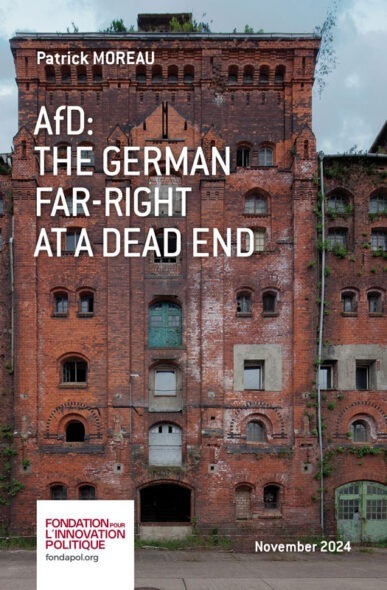
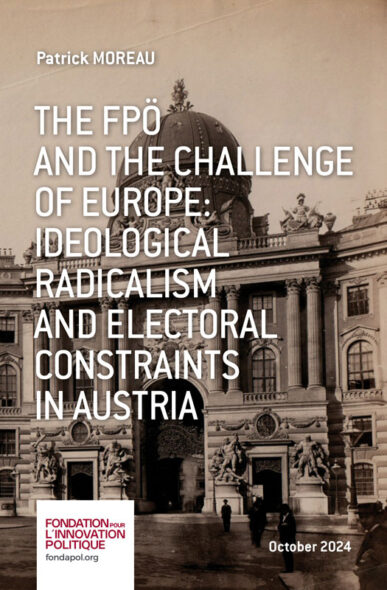

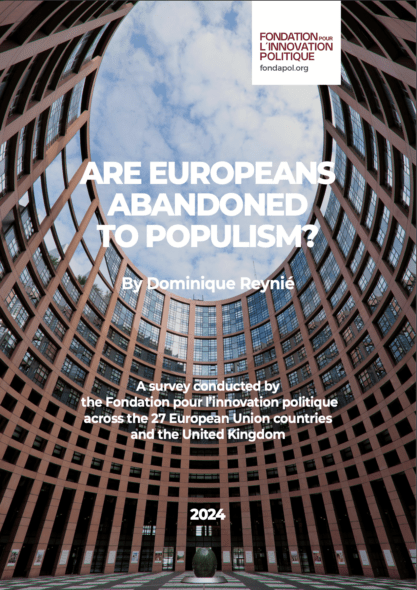
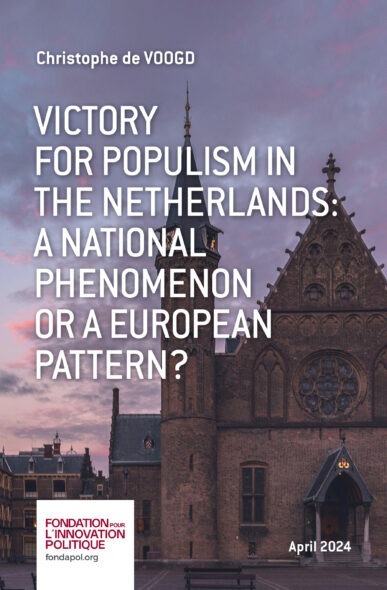

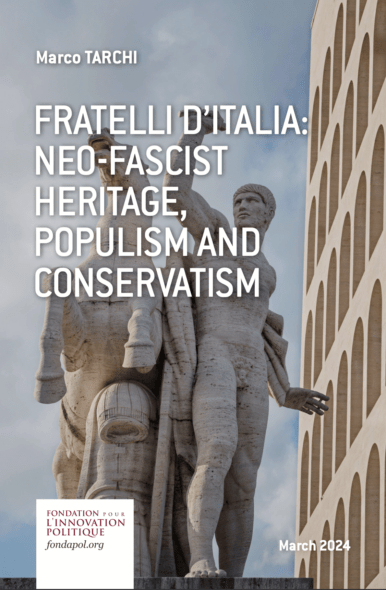

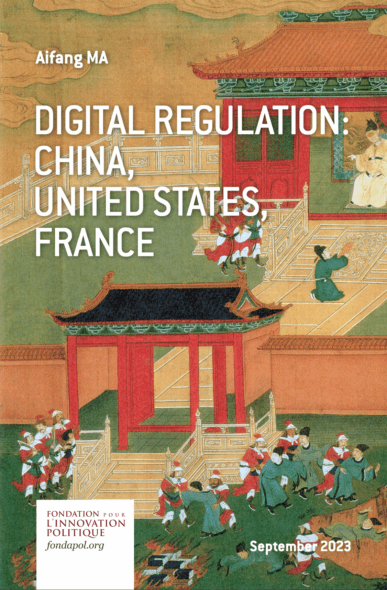
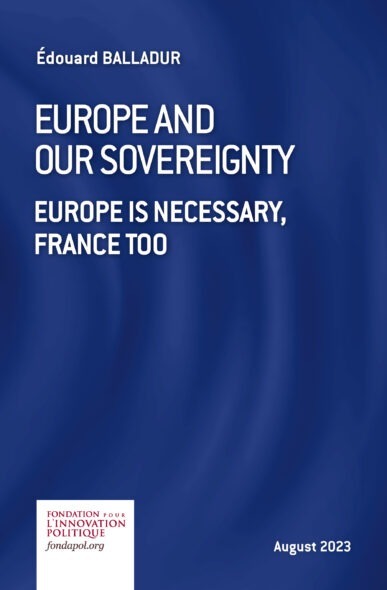
No comments.